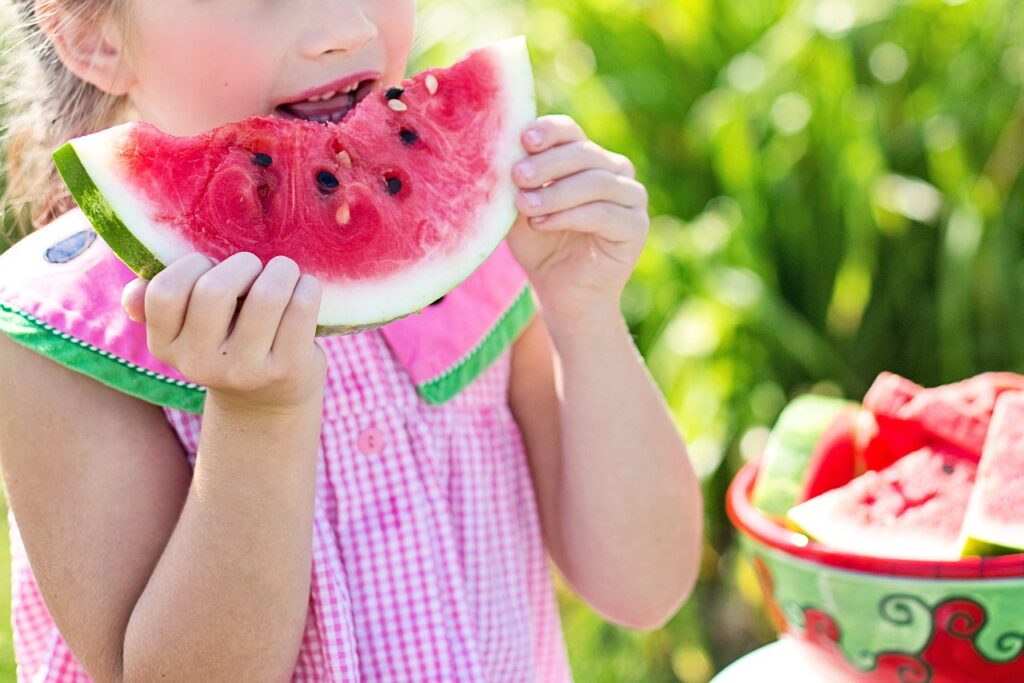Cultivating Healthy Eating Habits in Children
Table Of Contents
Cultivating Healthy Eating Habits in Children
The Importance of Healthy Eating Habits in Children
7 Ways to Imbibe Healthy Eating Habits in Your Children
Author: Riya Nanda
Your Take – Comments
Cultivating Healthy Eating Habits in Children
The dinner table transforms into a battleground, with little green broccoli florets becoming projectiles in the midst of the never-ending struggle to coax “just one more bite” out of unenthusiastic young eaters. Encouraging a well-rounded diet in kids might appear to be a daunting challenge, but parents, take heart! This is all about nurturing your child’s long-term health and happiness, not just about triumphing in the nightly mealtime standoff.
Ensuring that your child develops healthy eating habits from a young age is essential for their growth, development, and immune system. A well-balanced diet with fruits, vegetables, whole grains, and lean proteins provides the necessary fuel for their activities and overall health.
Written by Peaceful Soul guest post author Riya Nanda

The Importance of Healthy Eating Habits in Children

- Physical Health
A child’s health and development are linked to their diet. A balanced and nutritious diet supports their immune system, healthy growth, and lowers the risk of chronic conditions like diabetes, heart disease, and obesity. Proper nutrients help maintain energy levels and physical fitness. - Cognitive Development
Paying attention to your child’s nutrition during their early years is crucial for cognitive development. Consuming a variety of nutrient-rich foods supports brain growth and function, leading to improved academic performance and mental sharpness. - Emotional and Behavioural Well-being
The food that children consume can significantly impact their behavior and mood. A diet rich in vitamins, minerals, and omega-3 fatty acids plays a crucial role in regulating emotions and reducing the likelihood of mood disorders. Healthy eating habits contribute to fostering a more positive emotional state in children, leading to improved emotional stability and reduced behavioral issues. - Long-term Wellness
- Establishing healthy eating habits in childhood sets the foundation for long-term wellness. Children who learn to make nutritious food choices are more likely to continue these habits into adulthood, leading to a lower risk of developing lifestyle-related illnesses. Promoting healthy eating early on ensures that children grow into adults who prioritize their health and well-being, ultimately contributing to a healthier society.
7 Ways to Imbibe Healthy Eating Habits in Your Children

Now, how do we turn these benefits into reality? Here are some practical ways to cultivate healthy eating habits in your child:
- Be a Role Model: Children learn from what they see. Make healthy choices and they will too. Show them fruits and veggies, choose water over sugary drinks, and eat balanced meals. Your actions influence their choices!
- Make Mealtimes a Joyful Experience: During mealtime, it’s important to eliminate distractions such as television and phones. Instead, focus on engaging in meaningful conversations and turning mealtimes into a family bonding activity.
- Embrace the Rainbow: Offer a vibrant variety of healthy foods from all food groups. Think colorful fruits and vegetables, whole grains like brown rice or quinoa, lean protein sources like grilled chicken or fish, and healthy fats from avocados or nuts. Don’t forget whole wheat or Bajra rotis! Made from pearl millet, Bajra rotis are packed with protein, fiber, and essential nutrients – a delicious addition to a balanced meal.
- Involve Children in Meal Preparation: Get your kids involved in the kitchen! Take them to the store to pick out fruits and veggies. At home, they can help wash, chop, and stir, fostering ownership and enthusiasm for trying new foods.
- Portion Control: When introducing new foods, it’s a good idea to start with small portions. This can help prevent your child from feeling overwhelmed and allows them to ask for more if they like it. Encourage them to pay attention to their body’s signals and avoid pressuring them to finish everything on their plate.
- Make Healthy Snacks: Swap sugary snacks for fresh fruits with nut butter, yogurt with berries, or veggie sticks with hummus. Involve your kids in making snack platters for a fun and educational activity.
- Educate About Nutrition: Fruits and vegetables give us the energy we need to play and have fun. Whole grains help us build strong muscles, so we can run and jump. Protein helps us grow tall and stay healthy. Let’s make learning about food fun and interactive!
Conclusion:
Remember, nurturing healthy eating habits is a journey, not a destination. There will be bumps along the way, but with patience, consistency, and a positive approach, you can help your child cultivate a love for healthy foods and build a foundation for lifelong well-being. Watch them blossom into strong, confident individuals, ready to take on the world with a healthy body and a curious mind!
Author: Riya Nanda
Riya Nanda is part of the dynamic content team at Rotimatic. With a passion for productivity, health, and fitness, Riya brings a unique perspective to the content she develops, offering practical tips and insights for fellow busy professionals looking to achieve a balanced lifestyle. When she’s not crafting engaging content, Riya enjoys experimenting in the kitchen, sharing delightful recipes, and hosting game nights with friends. Her unique blend of professional insights and personal interests makes her a relatable and valuable voice in the world of content creation.
More Body Guides From Peaceful Soul

Guides
Click here for the latest Peaceful Soul guides to enhance physical wellbeing
